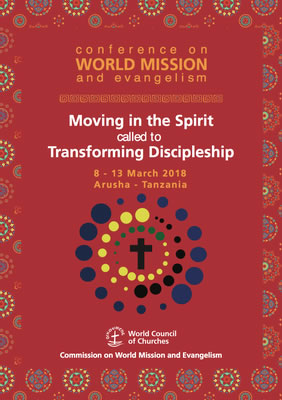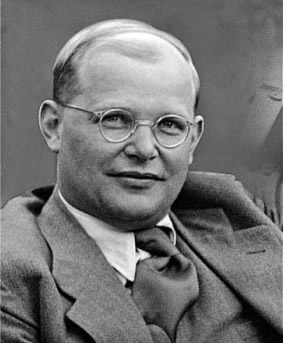
Forsiden - KirkenUpdate 2018 -
The Arusha Call to DiscipleshipKnud Jørgensen REPORT FROM THE ARUSHA CONFERENCE
The conference had four characteristics: It was a mission conference following in the long tradition of the International Mission Council (IMC) and the WCC Commission on World Mission (CWME) of holding mission conferences roughly every decade. Previous conferences have been held in 1928 in Jerusalem. The last one was in Athens in 2005. Also, Edinburgh 2010 is reckoned as one of the mission conferences. Secondly, it was an ecumenical conference with representatives from mainline Protestant, Orthodox, Roman Catholic, evangelical, Pentecostal and African Instituted churches. I was the only Lausanne representative. Ecumenical also implies efforts to engage the delegates in an open and honest dialogue, celebrating the unity of the churches and the unity between church and mission. Thirdly, it was an African conference – the first such conference in Africa since 1958 in Achimota, Ghana; with the spirit of African rhythms, music and art and clearly attending to African signs of the times. A significant number of speakers were African. And fourthly, it was a young mission leaders’ conference with more than 100 young students, scholars, and church leaders participating in the Global Ecumenical Theological Institute programme (GETI), which met prior to and then joined the conference. The strong participation of youth and of women was innovative and played an important role during the conference. The first part of the conference theme (Moving in the Spirit) was a reference to Galatians 5:25 – “If we live in the Spirit, let us also walk in the Spirit”. It meant discernment of the signs of the times, and it referred to the WCC notion of pilgrimage – Pilgrimage for Justice and Peace, chosen as a theme since the WCC general assembly in Busan in 2013. This expression was used abundantly from the platform. The second part of the theme calls to transforming discipleship – called to a life that transforms the very notion of discipleship, called to be disciples who are constantly open to being transformed, and called to be disciples who are transforming, working together towards life, living out the values of the kingdom of God, and engaging in mission from the margins. Some of these themes were lifted up during the morning Bible studies – in some ways the more substantial part of the programme. There were five main plenaries on the following themes: Celebrating and Lamenting, Following Jesus: Becoming Disciples, Becoming Disciples: Transforming the World, Transforming the World: Equipping Disciples, Equipped Disciples: Embracing the Cross. The plenaries were very well prepared and included some excellent key note speakers and panels, all of it coloured by African singing, performance and drums. In addition, there were a huge number of workshops (warsha in Kiswahili) over four days, and there was a daily community marketplace (sokoni in Kiswahili) where people could gather in the late afternoon and deliberate on such issues as youth, women, and the margins. The conference adopted ‘The Arusha Call to Discipleship’ which is found attached in its present form – it may be further edited and will be followed up by a theological document on key issues and eventually a full report from all the conference activities. A general reflection: A theological reflection: The Arusha Call to Discipleship includes some essential elements, like conversion and sin and a sentence about those who have not heard the good news yet; in my view this could have been clearer and more explicit. In some ways I felt at home in the conference. I think there is growing convergence on such key issues as mission Dei, the Kingdom of God as a common goal of mission, the holistic understanding and practice of mission (integral mission as it is called in the Cape Town Commitment), contextualization as a joint and common theological task. On these issues we generally agree. But I still lack a recognition of
I was disappointed over the very weak Lausanne participation; Mark Oxbrow from Faith 2Share and I were to my knowledge the only clear Lausanne representatives, with me as the only acknowledged Lausanne person. When I requested an opportunity to bring a greeting from Lausanne, my request was turned down for ‘pragmatic’ reasons. A stronger Lausanne participation would have allowed the evangelical voice to be better heard. Let me be blunt: I met with many good and well-meaning people, I enjoyed some good input from plenaries and workshops, I was happy with Bible studies and spirituality, but I honestly did not learn much new about God’s mission. Some evangelicals found a helpful critique of the alignment between power and discipleship which we see in an increasing number of global contexts and the neglect of the biblical bias towards the poor and the marginalised. Evangelicals (and sections of the the Eastern Orthodox) particularly need to be challenged on this issue – and this includes Lausanne itself. There were occasional conversations about the politicisation of faith in Latin America, the power of the Christian Right in the USA and the growth of prosperity gospel in Africa. We may also want evangelical communities around the world to do better in terms of confronting the marginalisation of the disabled, youth, the LGBT community etc. WCC and CWME are strong on this, and we could learn from them. Knud Jørgensen |
||||||
 |
||||||
| A videopresentation [See here] | ||||||
 |
||||||
 |
||||||
| Dietrich Bonhoeffer | ||||||
 |
||||||
| Lausannebevægelsens hjemmeside: [her] | ||||||